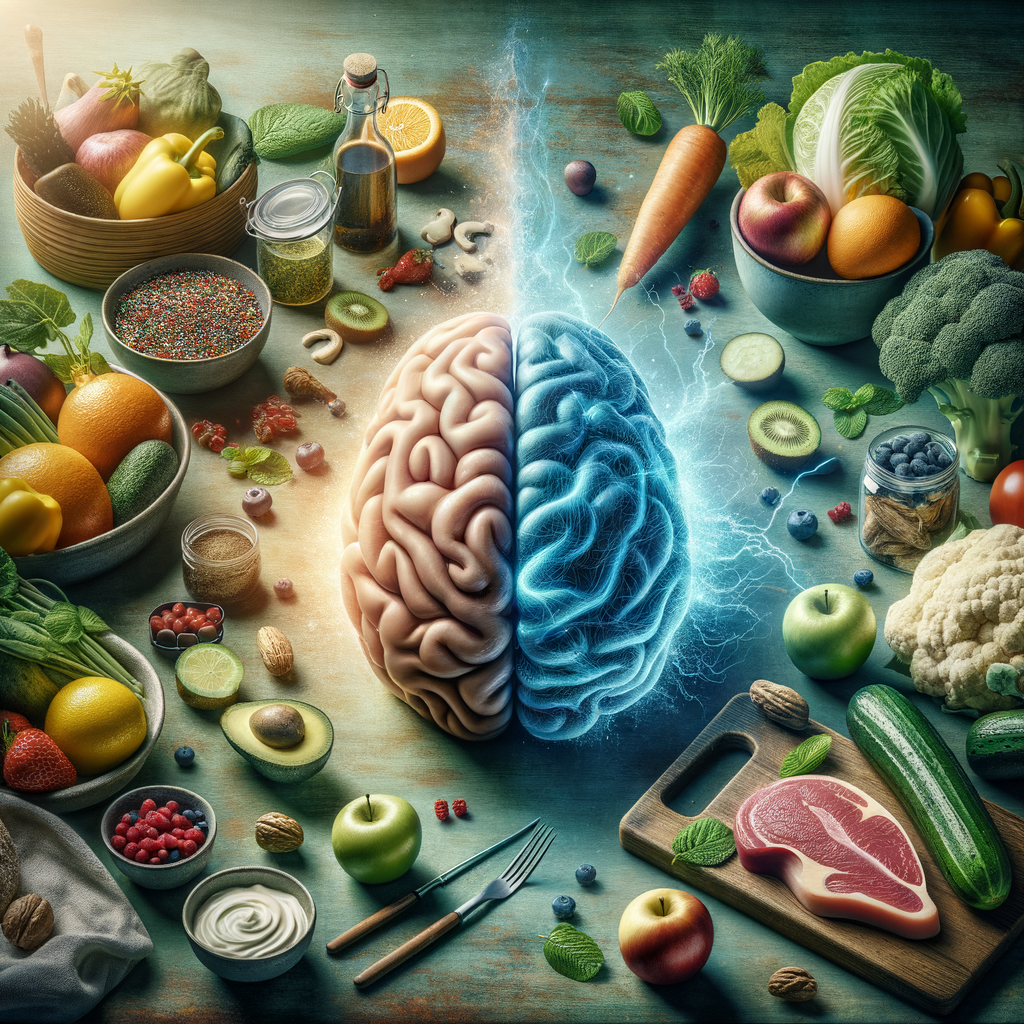Exploring the Connection Between Diet and Mental Health
In an age where mental health awareness is at an all-time high, the impact of diet on our mental well-being is often overlooked. Numerous studies have emerged, revealing a fascinating connection between what we eat and how we feel. This blog aims to delve deep into this intricate relationship, presenting compelling evidence and insights on how dietary choices can significantly influence our mental health.
The Brain-Gut Connection
The gut is often referred to as “the second brain” due to the billions of neurons that reside in the gastrointestinal tract. This connection between our brain and gut is known as the gut-brain axis, a bi-directional communication system that can profoundly influence our mood and cognitive function. Here’s how it works:
- Neurotransmitter Production: The gut produces about 90% of the body’s serotonin, a vital neurotransmitter known to affect mood.
- Microbiome Influence: The gut microbiome, consisting of trillions of bacteria, has been linked to various aspects of mental health, including anxiety and depression.
Research Findings on Diet and Mental Health
Numerous studies have examined how different diets impact mental health:
- The Mediterranean Diet: Rich in fruits, vegetables, whole grains, fish, and healthy fats, this diet has been associated with lower levels of depression.
- Processed Foods: High in sugar and unhealthy fats, processed foods can negatively affect brain function and are associated with increased anxiety and depression.
- Specific Nutrients: Nutrients such as omega-3 fatty acids, vitamins B6 and B12, and magnesium play crucial roles in maintaining mental health.
The Role of Specific Nutrients
Certain nutrients have shown significant potential in improving mental health:
- Omega-3 Fatty Acids: Found in fish, flaxseeds, and walnuts, omega-3s have anti-inflammatory properties that may help alleviate depression.
- Antioxidants: Foods rich in antioxidants, like berries and dark leafy greens, combat oxidative stress, which is linked to cognitive decline.
- Vitamins and Minerals: Adequate levels of vitamin D, zinc, and folate are crucial for neurotransmitter function and overall mental health.
The Importance of a Balanced Diet
To foster better mental health, it is crucial to adopt a balanced diet that encompasses a variety of food groups. Here’s a guideline for constructing a mentally beneficial diet:
- Prioritize fruits and vegetables to obtain essential vitamins and minerals.
- Incorporate whole grains for energy and fiber.
- Include sources of lean protein, such as fish, poultry, legumes, and nuts.
- Limit processed foods and refined sugars to reduce the risk of mood fluctuations.
Practical Steps to Improve Your Diet for Mental Health
Here are some practical tips to optimize your diet for improved mental health:
- Meal Planning: Consider planning your meals ahead of time to ensure you include diverse and nutrient-rich foods.
- Stay Hydrated: Dehydration can lead to fatigue and irritability; aim to drink plenty of water throughout the day.
- Mindful Eating: Take the time to enjoy your meals without distractions, which can enhance digestion and satisfaction.
- Consult with Professionals: If you’re struggling with dietary changes, consider speaking with a registered dietitian for personalized advice.
Conclusion
The connection between diet and mental health is an area of growing interest and importance. Understanding this relationship empowers individuals to make informed dietary choices that can enhance not only physical health but also mental well-being. As we continue to explore this field, it becomes evident that our food choices carry significant weight, shaping how we think, feel, and live.
There you have it… See what works for you…
Campbell M Gold
To Create Health, Wealth, Success, and Longevity through the Power of Your Subconscious Mind, Visit: Campbell M Gold.com
Visit The Store and see what else can be of help


Leave a Reply